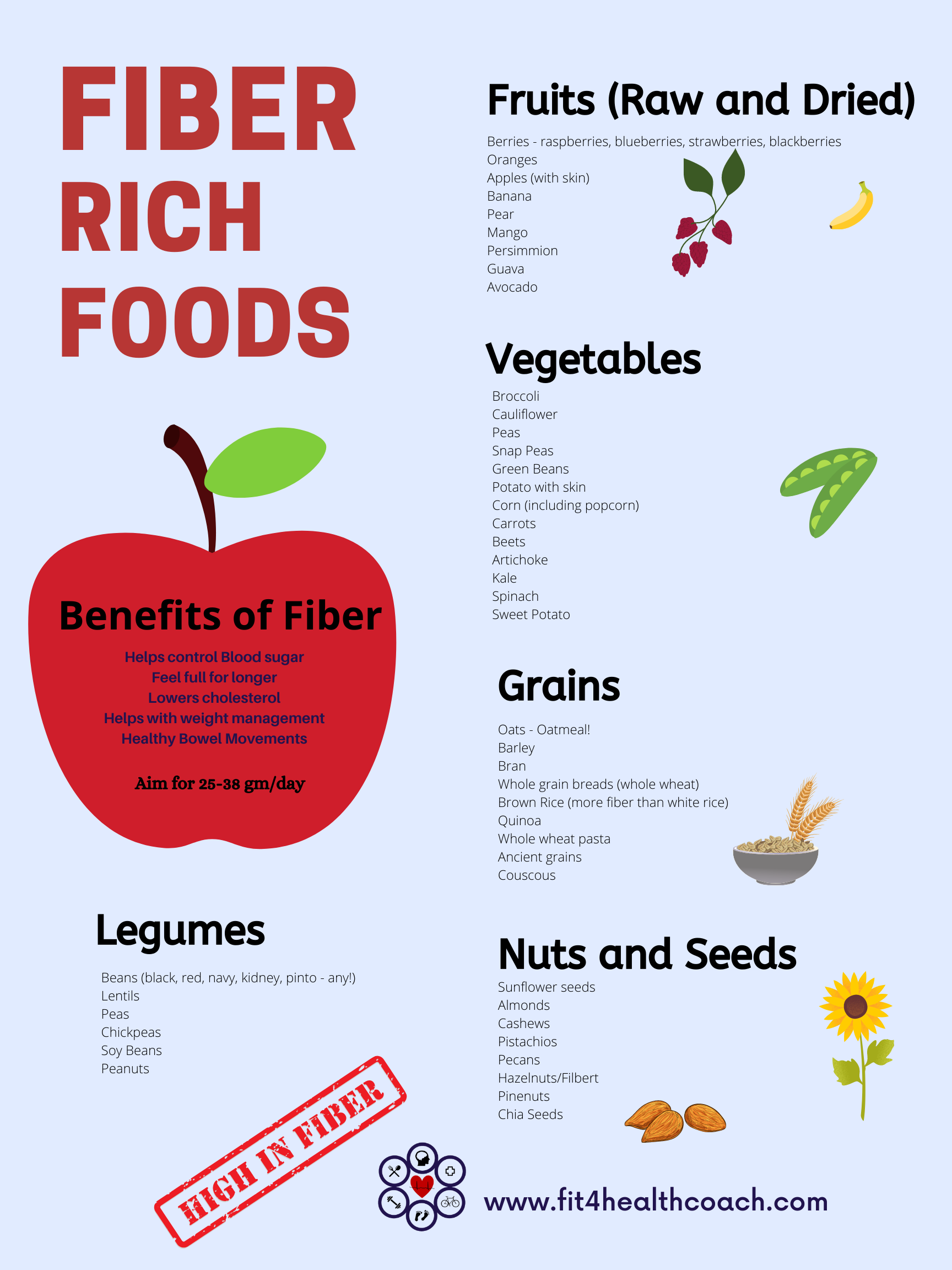DYI yogurt!
Why Fiber?
Fiber is an essential part of a healthy eating plan. The average fiber intake is estimated to be well below the current recommendations.
Check out Dr. Peterson’s list of Fiber Rich Foods. This list is not meant to be all inclusive (ie. add dates and prunes to fruits!) - simply a few ideas of how to increase your fiber. Most fiber comes from whole foods - My students will tell you, it is hard to find high fiber in processed, packaged foods.
Want to learn more? Connect with Dr. Peterson at janet@fit4healthcoach.com
What is a Registered Dietitian Nutritionist?
What is a Registered Dietitian Nutritionist (RDN)?
Registered Dietitian Nutritionists (RDN) or Registered Dietitian (RD) - the names are used interchangeably- are experts in food and nutrition care. The credential is: Registered Dietitian Nutritionist. Also referred to simply as Registered Dietitian (spelled dietitian with a “t” not a “c”). Many states require RDNs to be licensed healthcare professionals.
What does it take to become an RDN?
All RDN’s complete the following:
Minimum of a bachelor's degree: course work approved by the Academy of Nutrition and Dietetics' Accreditation Council for Education in Nutrition and Dietetics (ACEND).
Courses include biology, chemistry anatomy, physiology, biochemistry, medical nutrition therapy, microbiology, sociology, business management, marketing, economics, food services and speciality areas such as exercise and sport nutrition, renal nutrition or disordered eating.
All dietitians complete an accredited, supervised practice program at a health care facility, community agency and/or foodservice corporation. This is often referred to as the internship program and can be up to 1200 hours.
All dietitians passed a national examination administered by the Commission on Dietetic Registration.
Some states require dietitians to be licensed.
Dietitians must complete continuing professional educational requirements to maintain registration.
More than half of RDNs hold advanced degrees
In 2024 all RDNs will be required to hold at least a master’s degree.
What is the difference between an RDN and a “nutritionist” or health coach?
There is no regulation on the word “nutritionist”. Personal trainers, celebrates and anyone who wants to can refer to themselves as a nutritionist - including health coaches and many others. While folks working as “nutritionists” may have other certifications - they are typically not required to complete the level of training and education in nutrition science that is required of an RDN. Folks with generalized nutrition knowledge will refer to an RDN for nutrition therapy that is out of their scope of practice. Registered Dietitian Nutritionists in turn will refer to medical professionals as necessary. Registered Dietitian Nutritionists work within an approved scope/standards of practice (SOP) and scope of professional practice (SOPP).
Is working with an RDN right for you?
Not all RDNs provide the same services - some provide speciality care such as renal (kidney) nutrition or diabetes education. Some focus on health at any size (HAES) approach and and others include a non diet approach or intuitive eating in their practice. Some focus on weight management and others are experts in sports nutrition. What is important is that you find a dietitian that works with you and your goals. When choosing a dietitian, check in with them to make sure they meet YOUR goals and needs. Most private practice dietitians will provide an opportunity to meet with you for no charge to see if they are a good fit.
Will Registered Dietitians take my insurance?
Great Question! Some do. Some don’t. Check with the dietitian to see if they are a provider for your insurance. Some dietitians will only take private paying clients. That first free visit is a great time to check in with the dietitian provider to see if they will take your insurance. Many will offer sliding payment scales.
Why choose a Dietitian instead of a nutritionist?
More on this in the next blog post - short answer: If you require insurance to pay for your visits. Or you require medical nutrition therapy for a specific disease or disorder - then consider working with an RDN. Registered Dietitian Nutritionists are trained to provide medical referrals when necessary. Many health coaches and nutritionists will (hopefully) refer clients to an RDN if and when necessary. Check out this post for reasons choose an RDN from the Academy of Nutrition and Dietetics.
Check out this post from the Academy of Nutrition and Dietetics for more information on conditions that RDN specialities.
How do I connect with an RDN?
Your medical provider is a great place to start. You can also search the RDN Provider database.
The Fit 4 Health Blog does not provide medical advice. It is for informational purposes only. The blog/website should not be used for as a substitute for medical advice. We assume no liability for your use of this website or reliance on any of the information provided. Statements on this blog reflect the author’s personal opinions and do not represent the views or policies of the author’s employers or any other organization that the author maybe affiliated with. The reader is strongly encouraged to do their own research and to work with their medical provider.
Welcome to Fit 4 Health Bites
Hi! I am excited to share some of my nutrition and wellness insight with you. What you will find here are nutrition and wellness bites: short and easy to digest. Possibly a recipe or two as well. Please feel free to leave any feedback or comments. I love to hear from my clients/readers.
Have a great day!



